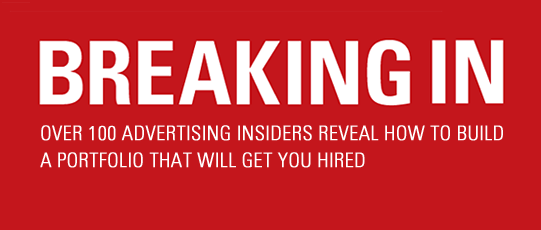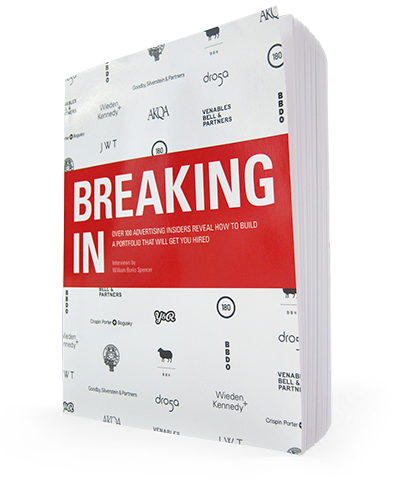Check out some great work from Matt Vescovo.
WS: What impresses you in a student book?
MV: I think an interesting thing is a balance of voices. They have a voice to their work—there’s a tone of voice—but at the same time, that doesn’t override what’s appropriate for the assignment or the product. Every campaign needs to feel different and have a distinct point of view.
And that they’re saying something that’s not ambiguous. They’re really making a statement that’s clear. And I think that’s something that helps you empathize, and connects with you, that’s relatable. That kind of touches you and hits you that way. And obviously something that’s unique, which is hard. Something that has a unique voice and unique ideas, but at the same time, isn’t so out there that it’s not relatable. And that’s a tough balance to get because you don’t want to create poetry. You have to create something that people are going to respond to, and that people are going to understand.
[ … ]
WS: Do you think you need long copy in a book, either as a writer to show you can write or for an art director to show you can lay it out?
MV: It’s funny, what’s really appropriate about the whole thing, is creative directors look at student books the way consumers look at advertising. They don’t have a lot of time, they’re being hit with a whole lot of things, so you really have to capture them and get their attention and break through. So it’s a very similar kind of obstacle you’re confronted with, with the two different groups. It’s a very subjective thing. Some people really feel you need that. For writers, you probably want to show you can write copy. I don’t know if people are going to read the whole thing. You might want to have some of that in there, but it has to be appropriate for the product. It’s got to be for a car, or something that’s a big purchase, or something where you want to get more information to the person. You can’t just write it because, “Oh geez, I need a long-copy ad. I’ll write it for toothpaste.” You probably don’t need that much information about toothpaste.
[ … ]
WS: Do you have any tips on how to get into the industry, or tips on how to improve as an art director or a writer?
MV: I went to a university where I took a lot of different kinds of classes. I was practically a music minor at Syracuse. And I use music so much in advertising. I also took a lot of philosophy classes. I took all these different classes, and I think what I would say to students is, you can’t create advertising in a bubble. What’s going to make you great at writing ads is your life experience and relating to people and how they relate to things. So that only comes from doing a lot of different stuff. So you can’t just write ads. I mean, that’s part of it, but you should take a class in a language, or travel, or do things like side projects just for the hell of it. Because ultimately, that’s what you’re going to use when you’re in your head, when you’re concepting, you’re going to draw from all these different things.


Comments are closed.